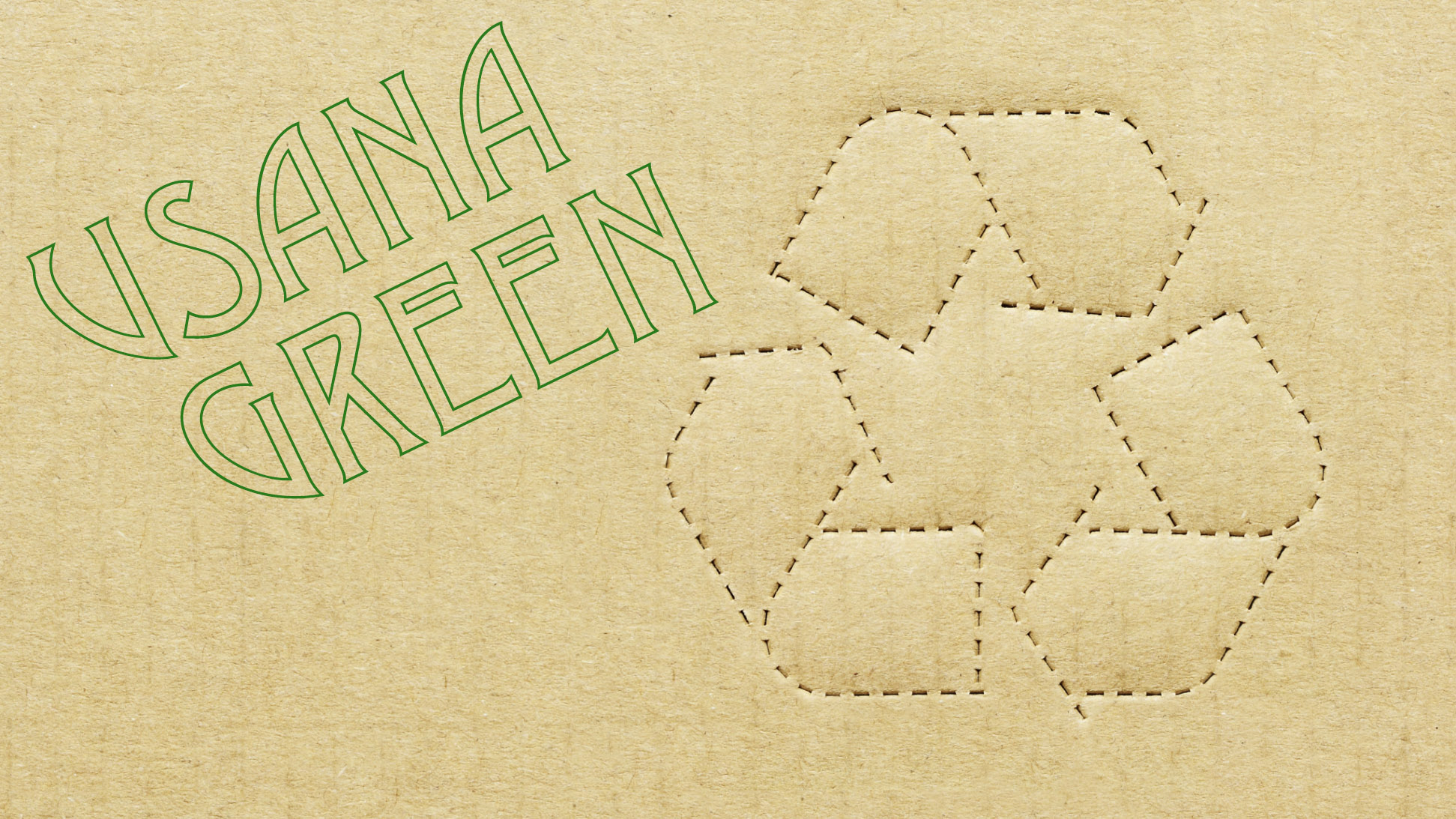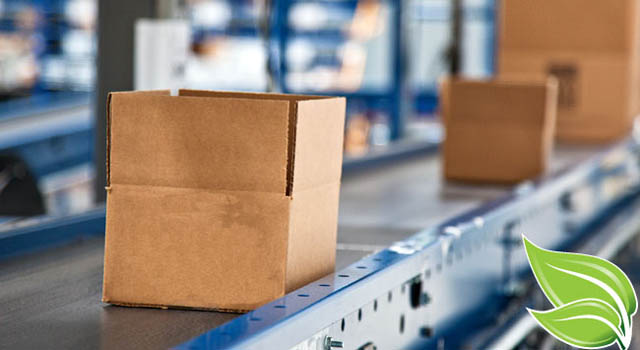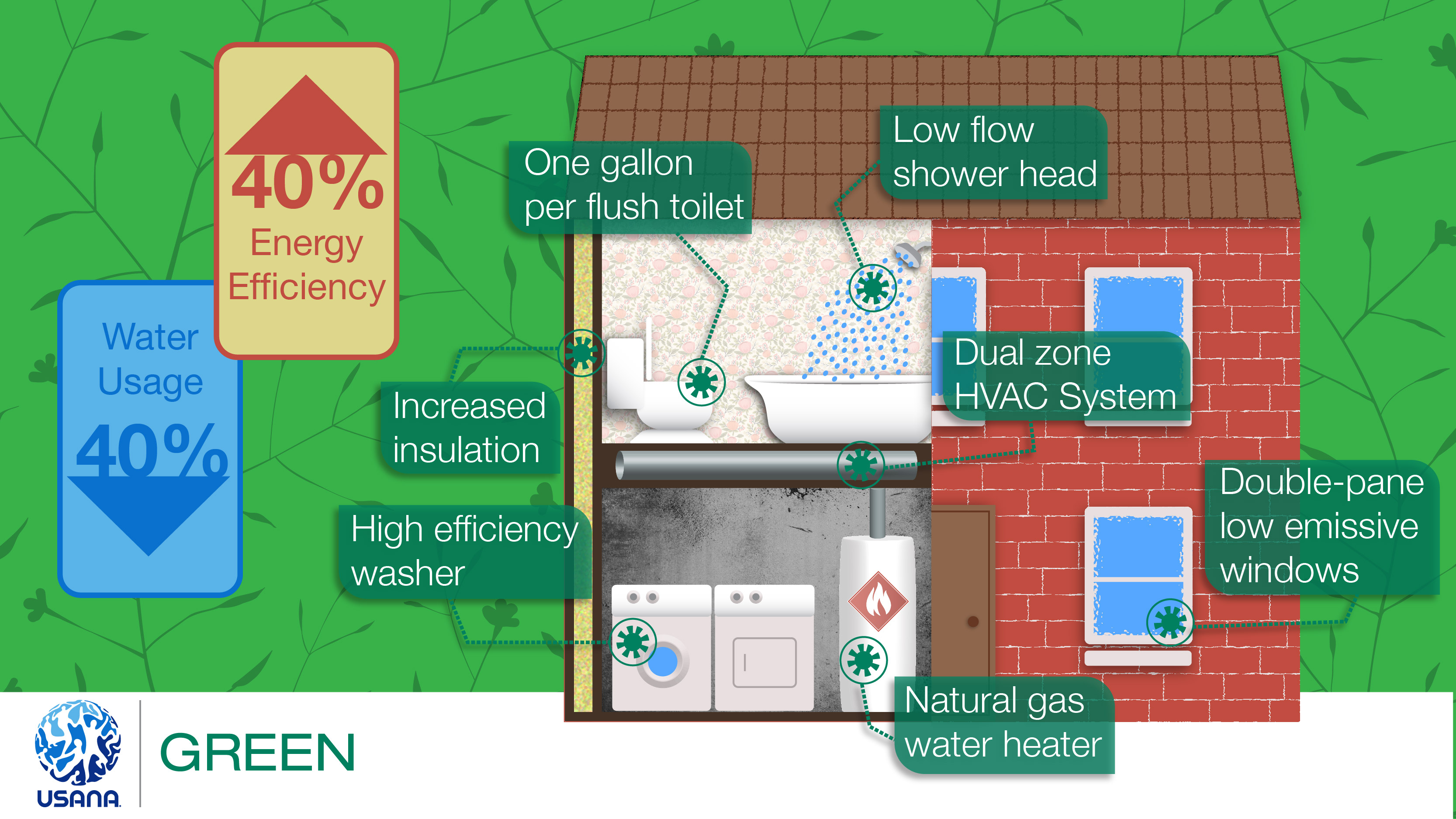Earth Day, Every Day
 Tips For Being More Eco-Friendly on Earth Day
Tips For Being More Eco-Friendly on Earth Day
April 22 marks the anniversary of the birth of the environmental movement in 1970 — otherwise known as “Earth Day”.
We celebrate Earth Day every year is to make a conscious effort to support a healthy, sustainable environment. To have cleaner air, cleaner water, and the ability to live a happier and healthier life.
The fight for a cleaner environment is not a new concept for USANA.
In fact, we’ve been taking steps to be more environmentally friendly for years.
Here’s how you can, too.
Reducing the Footprint
Everyone leaves an ecological (or carbon) footprint on the earth.
This is the impact that your activities have on the environment.
Everything from taking a shower, to driving, to leaving a TV running contributes to this footprint.
According to EarthDay.org, “Ecological Footprint accounts answer a specific research question: how much of the biological capacity of the planet is demanded by a given human activity or population? To answer this question, the Ecological Footprint measures the amount of biologically productive land and water area an individual, a city, a country, a region, or all of humanity uses to produce the resources it consumes and to absorb the waste it generates with today’s technology and resource management practices.”
By changing some of our habits, we can reduce a number of greenhouse gasses we emit.
Travel Wise
Every time we get in our car and drive, carbon dioxide is emitted into the air and damages the environment.
There are multiple ways to help reduce this impact:
- Carpool to work
- Use public transportation
- Ride a bike instead of drive
- Walk instead of drive
- Travel less often
Become Energy Efficient
The way we use our appliances every day has an impact on our environment.
Everything from leaving the lights on, not turning off your computer, to watching TV emits carbon dioxide.
On top of that, the use of dishwashers, electric dryers, refrigerators and ovens emit carbon dioxide every time we use them!
That’s a lot.
Remembering to turn off electronic devices when not in use and turning off all lights when you’re not at home will help.
You may also want to consider making the switch to energy-efficient appliances if you can.
Water Use
One way to help the environment is to reduce the amount of water you use. Here are a few ways to do this:
- Take shorter showers
- Xeriscape your yard or water your lawn less frequently
- Fix any leaky faucets you have in your home
Something I found interesting was that studies show using a dishwasher is more water-efficient than washing dishes by hand.
An energy-efficient dishwasher will use on average about four gallons of water per cycle, while your faucet spouts two gallons of water per minute.
That’s right — if you can’t wash your dishes in seconds, you’re probably better off using a dishwasher.

Recycle
Recycling is a great way to help conserve the earth’s resources.
Recycling is the process that lets us turn waste into usable materials again.
Here are some materials we can recycle:
- Metals
- Aluminum Cans: According to Waste Management, Americans drink one beverage from an aluminum can every day, but only recycle 49 percent of the cans they use. That’s a lot of missed opportunity! Remember to recycle your cans – they can be returned to the shelf as a new can in just 60 days after being recycled!
- Soup cans, coffee cans, etc.: Steel cans make up the majority of the United States’ can market! According to Waste Management, Americans use about 100 million steel cans every day, but only 71 percent of them are recycled.
- Aluminum Foil: aluminum foil is recycled quickly and efficiently, but most people don’t recycle it. Make sure to check this one off your list when you’re doing your recycling!
- Paper/Cardboard
- Most of us use paper or cardboard products, and all of them are recyclable. If you have old magazines, office papers, or newspapers lying around, bundle them together and put them in your recycling bin.
- Glass
- Glass recycling isn’t available everywhere, but if it is, keep it in mind as you go through your materials! Not all glass can be recycled though, including kitchen glass and window glass because they are made of a different material. Stick to glass bottles and jars that held food (but make sure they’re clean before you recycle them).
- Plastics
- When you recycle plastic containers, make sure they are clean and free of any waste.
- Batteries/Bulbs
- Do you have an old car battery sitting around? You can recycle that. Another option is to recycle your batteries and purchase rechargeable ones.
- Electronics
- Instead of just throwing away a damaged electronic good, look up the manufacturer and see if they have a recycling program. Often times, they will send a box for you to ship your electronic device back to them, and they will take care of recycling it. Your local municipality may also have special disposal days or drop-off locations for used electronics.
How USANA Is Going Green
Over the years, USANA’s carbon footprint has been steadily getting smaller.
We used to use more energy and produce more emissions for every product we made.
In 2008, we realized we had to make some changes.
By 2013, we had reduced our carbon dioxide emissions from 1.2 pounds to 0.8 per product!
USANA also participates in an annual Clear the Air Challenge.
Employees are encouraged to utilize alternative means of transportation, including cycling, light rail and the local bus system.
Every year, more employees participate in this initiative.
We’re also working on promoting a more energy-efficient culture.
We’ve installed over 400,000 watts of solar voltaic cells in rows on two of our warehouses. These solar cells produced 1.42 gigawatt hours of power for USANA since we started installing them in 2008.
We’re committed to reducing our carbon footprint every day — not just Earth Day.
Resources to Learn More
There are several sites out there for tips and tricks on how to be more environmentally friendly.
- Waste Management
- The Complete Guide to Recycling, Composting, and Zero Waste
- Earth Day Network
- 15 Easy Ways to Become Environmentally Friendly
- 41 Eco-Friendly Tips
- Environmental Protection Agency
How Do You Go Green?
Have any tips on how to be more environmentally friendly that I didn’t include here?
Let us know in the comments below!











Leave a Reply
Want to join the discussion?Feel free to contribute!